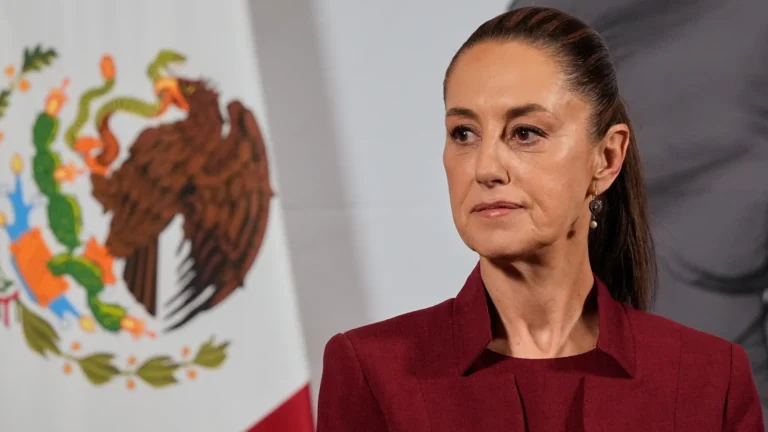Mexican President Claudia Sheinbaum has confirmed that U.S. President Donald Trump proposed deploying American troops to Mexico to help combat drug trafficking—an offer she decisively rejected, citing the inviolability of Mexico’s sovereignty.
Speaking at a university event near Mexico City on Saturday, Sheinbaum responded to a May 2 Wall Street Journal report alleging that Trump had urged deeper U.S. military involvement in Mexico’s efforts to combat cartels, particularly to halt the cross-border flow of fentanyl.
“In one of the calls, [Trump] said, ‘How can we help you fight drug trafficking? I propose that the U.S. Army come in to help you,’” Sheinbaum said. “And I told him, ‘No, President Trump. Our territory is sacred. Sovereignty is sacred. It is not for sale—it is to be defended.’”
While Sheinbaum emphasized that Mexico remains committed to working with the U.S. on security cooperation, she drew a clear line against foreign military presence: “We will never accept U.S. troops on Mexican soil.”
A National Security Council spokesperson declined to confirm the troop offer but reaffirmed Trump’s position that “Mexico must do more” to confront cartel violence. The spokesperson said Trump and Sheinbaum have worked to maintain “the most secure southwest border in history,” though the threat from transnational criminal groups remains acute.
The White House has not issued an official statement regarding the reported proposal.
Trump has previously floated the idea of unilateral U.S. military action against Mexican cartels if Mexico does not act decisively, drawing both criticism and support in U.S. political circles. Earlier this year, his administration designated the Sinaloa and other cartels as foreign terrorist organizations, a move some experts say could pave the way for direct U.S. intervention.
Tensions between the two leaders reportedly escalated during an April 16 phone call that included discussions on border security, trade, and immigration. Trump once again urged U.S. military involvement, further straining bilateral ties.



























